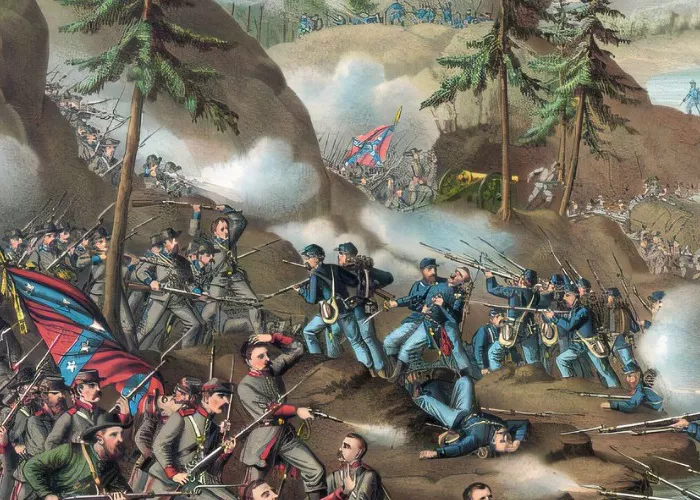November 23 has witnessed a variety of significant events throughout American history, ranging from military battles to cultural milestones. This article will explore these events in detail, providing context and significance for each occurrence.
What Happened on November 23 in American History?
The Battle of Chattanooga (1863)
One of the most pivotal moments in the American Civil War occurred on November 23, 1863, when the Battle of Chattanooga began. This battle was crucial for the Union forces, led by General Ulysses S. Grant, as they aimed to secure control over a vital supply line and gain a strategic advantage in the South.
Chattanooga was a key railroad hub, making it essential for both Union and Confederate forces. Following the Union’s defeat at Chickamauga earlier that year, Grant’s forces regrouped and launched a counter-offensive against the Confederate army under General Braxton Bragg. The battle lasted until November 25 and resulted in a decisive victory for the Union. This victory opened the door for General William Tecumseh Sherman’s Atlanta Campaign and ultimately contributed to the Union’s success in the Civil War.
The Formation of the Female Medical Educational Society (1848)
On November 23, 1848, the Female Medical Educational Society was established in Boston. This organization played a crucial role in advocating for women’s access to medical education at a time when such opportunities were severely limited.
The formation of this society was part of a broader movement advocating for women’s rights in the United States. It aimed to provide women with the necessary training to become physicians and improve healthcare for women and children. The society’s efforts contributed to the eventual establishment of medical schools that accepted female students, paving the way for future generations of women in medicine.
The Birth of Billy the Kid (1859)
November 23, 1859, marks the birth of Billy the Kid, born William H. Bonney. He would become one of America’s most infamous outlaws, known for his involvement in various criminal activities during the late 19th century.
Billy the Kid became a legendary figure in American folklore due to his exploits in the Wild West. His life was characterized by gunfights, escapes from law enforcement, and a reputation that grew larger than life through stories and films. His legacy reflects themes of rebellion and lawlessness that were prevalent during America’s westward expansion.
The Debut of Doctor Who (1963)
On November 23, 1963, Doctor Who, one of the longest-running science fiction television series in history, premiered on BBC television. While this event is British in origin, its impact on American culture has been profound.
The show introduced audiences to the Doctor, a Time Lord who travels through time and space in a ship known as the TARDIS. Doctor Who has influenced countless aspects of popular culture, including literature, film, and television series in America. Its themes of adventure and morality resonate with audiences worldwide, making it a significant cultural phenomenon.
The First Issue of LIFE Magazine (1936)
Another noteworthy event on November 23 occurred in 1936 when LIFE magazine published its first issue. This publication would go on to become an iconic American magazine known for its photojournalism.LIFE magazine revolutionized how news was presented to the public by emphasizing photography over text. Its powerful images captured significant historical moments, influencing public perception during events such as World War II and civil rights movements. The magazine’s legacy continues to shape journalism today.
The Jukebox Debuts (1889)
On November 23, 1889, the first jukebox was unveiled at the Palais Royale Saloon in San Francisco. This invention marked a significant development in music consumption.The jukebox allowed patrons to select songs from a catalog using coins, transforming how music was enjoyed in public spaces. It became emblematic of American culture throughout the 20th century, particularly during the rise of rock ‘n’ roll music. Jukeboxes played an essential role in social gatherings and entertainment venues across the country.
The Signing of the Willis-Campbell Act (1921)
On November 23, 1921, President Warren G. Harding signed into law the Willis-Campbell Act, which prohibited doctors from prescribing alcohol for medicinal purposes.This act reflected broader societal changes regarding alcohol consumption during Prohibition. It aimed to curb misuse by preventing medical professionals from legitimizing alcohol use as treatment. The law highlighted tensions between public health policies and personal freedoms during this tumultuous period in American history.
Conclusion
November 23 is rich with historical significance in American history. From military victories to cultural milestones, this date encapsulates pivotal moments that have shaped both national identity and cultural heritage. Each event reflects broader societal trends and transformations that continue to influence America today. Understanding these events provides insight into how history is interwoven with our present-day lives.
Related Topics

